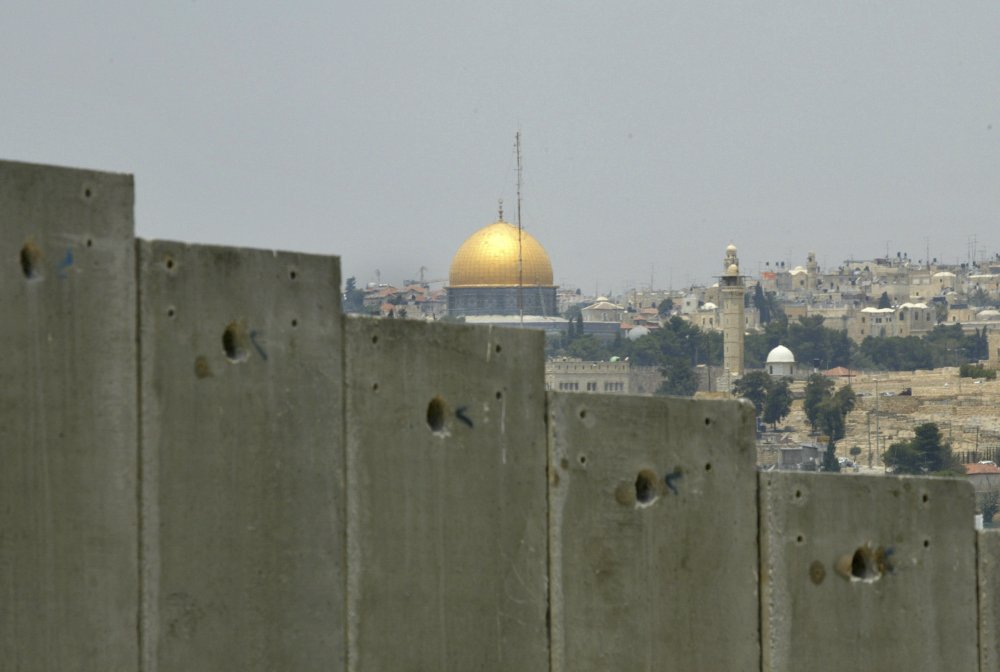The continuing violence against Libyan protesters has forced thousands of refugees to flock to Egypt’s borders in recent days. While many refugees have been granted temporary asylum in Egypt, fleeing Palestinians have gone largely unattended.
About 140,000 people have fled Libya since 19 February, the United Nations High Commissioner for refugees (UNHCR) reported on Tuesday. About 75,000 have fled to Tunisia and 69,000 to Egypt.
Mohammad Hammad, director of cultural affairs at the Palestinian consulate in Alexandria, arrived at the Salloum crossing on the Egypt-Libya border on Tuesday to provide assistance to fleeing Palestinians. According to Hammad, Palestinians arriving in Egypt are being sent back to Libya by the authorities.
He stated that Palestinian refugees fleeing Libya were mainly families with children and elderly men. He confirmed the arrival of 60 to 65 Palestinians within the last three days, the majority of whom were sent back to Libya.
“According to Egyptian officials, the law requires Palestinians who enter Egypt to have a visa from the host country’s embassy first," he said. "For this reason, the Palestinian Authority ambassador in Cairo is trying to obtain this permission from the Egyptian government in order to allow them to go to the Gaza Strip via Egypt. They simply want to return to their homeland."
Hammad said that the Palestinian consulate in Cairo was providing refugees with essential supplies. The situation is critical, he said, with “families living outdoors without anything. Many of them do not even have money."
“The UNHCR does not usually deal with Palestinians in the UNRWA (United Nations Relief and Works Agency) area of operations, which is mainly the West Bank, Syria, Lebanon and Jordan,” UNHCR representative in Cairo Mohammed Dayri told Al-Masry Al-Youm.
“In this specific case, Palestinians are refugees, and the UNHCR has the duty to protect them, since Egypt is not included in the UNRWA area of operations,” Dayri added.
Dayri said that the situation remained unclear. According to Dayri, one group of Palestinians was reportedly allowed to pass through Egypt into the Gaza Strip and West Bank, but the reasons for this different treatment remains unknown.
Dayri added that he had been assured by Egyptian authorities that all Libyans would be allowed into Egypt, noting that none of the 3,636 Libyans who have reached Egypt's borders so far had been sent back to Libya. The only problem, which still remains unsolved, he said, was related to refugees of Palestinian origin.
Sending refugees back to areas from which they have fled out of fears for their physical safety is considered illegal.
“For refugees living in fear of persecution or physical danger, a state like Egypt is obliged not to send them back. It does not matter what status they have, or what passport they carry. It is not a technical matter of residency,” Joseph Schechla, coordinator of the Housing and Land Rights Network and Habitat International Coalition, an independent international NGO, said.
Legally speaking, sending them back violates laws governing the treatment of refugees, Schechla said, since they also have documents proving their country of origin. “They are not just stateless people,” he said.
“Egypt should receive these refugees and protect them. In addition, if there is discrimination against a particular type of refugee, then Egyptian officials are violating their obligations under accepted principles of international law,” Schechla concluded.
UNHCR High Commissioner António Guterres, for his part, has called on governments to help and support all vulnerable people regardless of their nationalities.
“There are no planes or boats to evacuate people coming from war-torn or very poor countries. Many of these people feel targeted, afraid, and have no resources,” he said.
According to the International Organization for Migration, Libya is estimated to host some 1.5 million migrants. In addition to as many as one million Egyptian expatriates working in Libya, embassy sources in Cairo confirmed that Libya also hosts around 80,000 Pakistani nationals; 59,000 Sudanese; 50,000 Bangladeshis; 26,000 Filipinos; and 2,000 Nepalese; along with other African and Asian migrant workers.
More than 100,000 Palestinian refugees live in Egypt, most of whom were expelled following Israel's 1967 invasion and occupation of the Gaza Strip.
While enjoying relatively better conditions than in other host countries, Palestinian refugees in Egypt complain about restrictions on employment.
There have been no guarantees, meanwhile, that Palestinian refugees fleeing Libya would be admitted into Israel or the Occupied Palestinian Territories.




